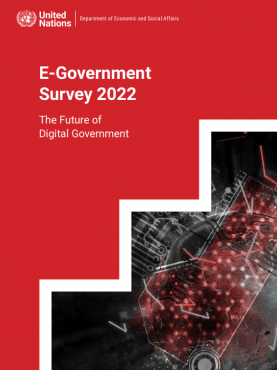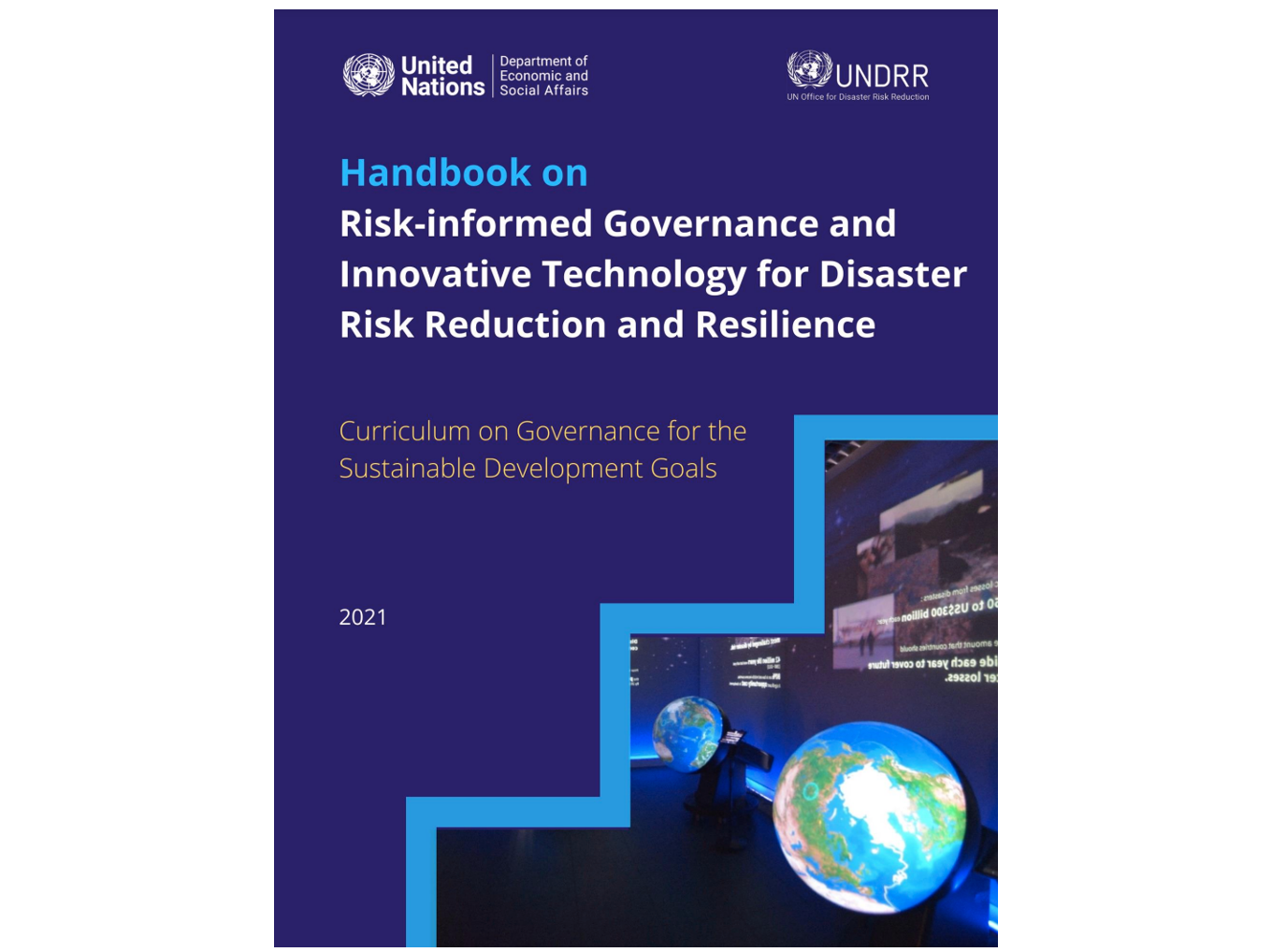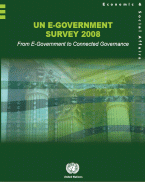| Policy Briefs | Digital Government
UN DESA Policy Brief No. 149: Promoting Youth Participation in Decision-Making and Public Service Delivery through Harnessing Digital Technologies
Key messagesHarnessing digital technologies can greatly support public institutions in promoting effective youth engagement and participation in policy processes. Digital technologies can play an instrumental role in youth engagement and…
| UN E-Government Surveys | Digital Government
UN E-Government Survey 2022
The United Nations E-Government Survey 2022 is the 12th edition of the United Nations’ assessment of the digital government landscape across all 193 Member States. The E-Government Survey is informed by over two decades of longitudinal research,…
| Handbooks | Digital Government | Public Service Innovation
Handbook on how to design and implement One-stop-Shops to promote better service delivery and implement the Sustainable Development Goals
This Handbook, prepared by UN DESA/DPIDG, provides local and national governments with a set of conceptual approaches, practical strategies, and tools to improve the delivery of public services through citizen centric One-stop-Shops (OSS). It…
| Policy Briefs | Digital Government
UN/DESA Policy Brief #123: Sandboxing and Experimenting Digital Technologies for Sustainable Development
From innovation hubs and policy experiments to regulatory sandboxes
Digital technologies carry a promise to fast track sustainable development by supporting innovative, forwarding-looking policies and digital government solutions. There are,…
| Handbooks | Digital Government | Public Service Innovation
Handbook on Risk-informed Governance and Innovative Technology for Disaster Risk Reduction and Resilience
This Handbook is developed based on the Traning of Trainer Toolkit on Risk-informed Governance and Innovative Technology for Disaster Risk Reduction (DRR) and Resilience. The overall learning outcome of this training toolkit is to meet the…
| Handbooks | Digital Government
Digital Government Capability Assessment
The Digital Government Capability Assessment (DGCA) is a six-dimension framework of enablers to engage governments in discussions towards digital government transformation. Considering that digital government requires a multifaceted response from…
| Policy Briefs | Digital Government
UN/DESA Policy Brief #92: Leveraging digital technologies for social inclusion
Leveraging digital technologies for social inclusion
Key messages
COVID-19 is accelerating the pace of digital transformation. In so doing, it is opening the opportunities for advancing social progress and fostering social inclusion, while…
| Policy Briefs | Digital Government | Open Government Data
UN/DESA Policy Brief #89: Strengthening Data Governance for Effective Use of Open Data and Big Data Analytics for Combating COVID-19
Strengthening Data Governance for Effective Use of Open Data and Big Data Analytics for Combating COVID-19
Summary
Governments are highly dependent on all data including official statistics, administrative data, open data and big data analytics…
| Policy Briefs | Digital Government
COVID-19: Embracing Digital Government During the Pandemic and Beyond
The COVID-19 pandemic is forcing governments and societies to turn toward digital technologies to respond to the crisis in the short-term, resolve socio-economic repercussions in the mid-term and reinvent existing policies and tools in the long-term…
| UN E-Government Surveys | Digital Government
From E-Government to Connected Governance
From E-Government to Connected Governance
The UN E-Government Survey 2008: From E-Government to Connected Governance assesses the E-Government Development of the 192 Member States of the UN according to a quantitative composite index of e-readiness…
| UN E-Government Surveys | World Public Sector Reports | Digital Government
World Public Sector Report 2003
E-Government at the CrossroadsThe World Public Sector Report 2003 presents a view of e-government as a tool for creating public value. It puts e-government development in the context of the United Nations Millennium Declaration, the Report claims…
 欢迎来到联合国,您的世界!
欢迎来到联合国,您的世界!







